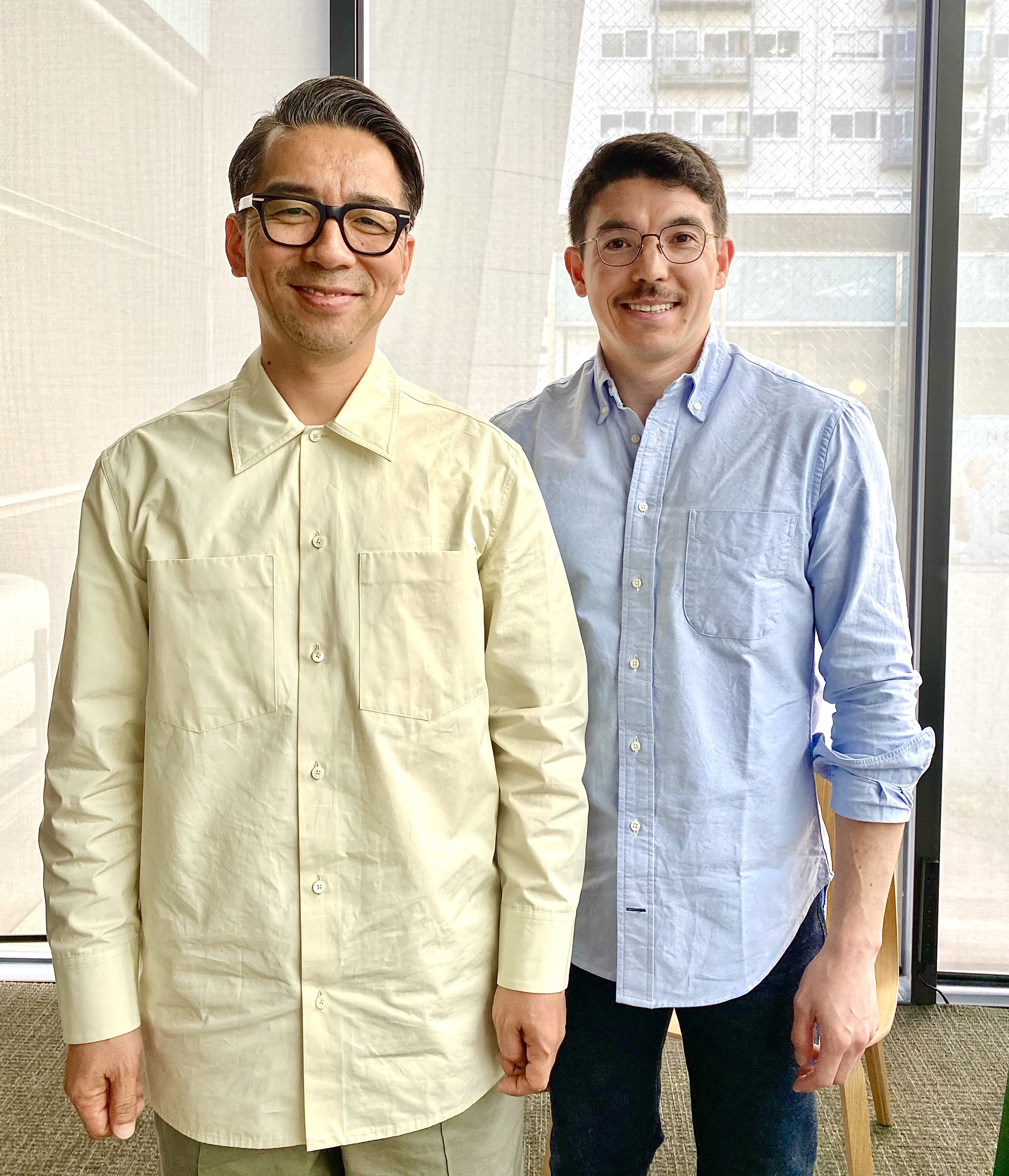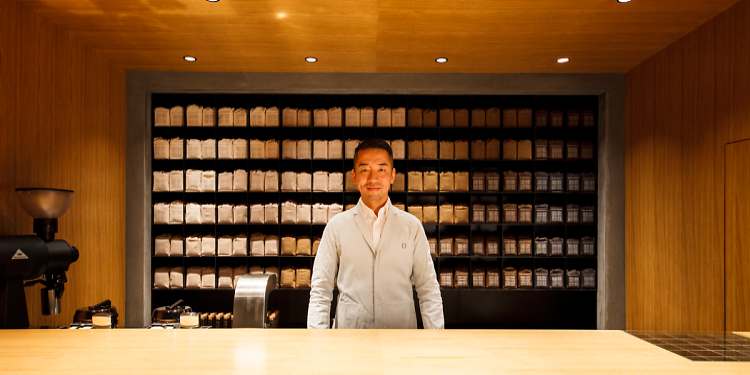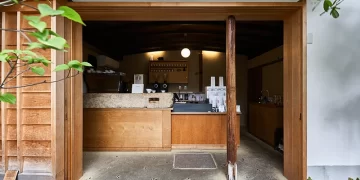In a quiet corner of Tokyo, there’s a place where coffee transcends its role as a beverage and becomes a meditation on craft, culture, and connection. Koffee Mameya, with its minimalist aesthetic and curated approach, is the vision of Eiichi Kunitomo, a man whose journey in coffee is as rich and complex as the beans he sources. From humble beginnings to global recognition, Kunitomo has redefined what it means to experience coffee.
A Passion Ignited
Eiichi Kunitomo’s journey into coffee was far from straightforward. It began not with a love for coffee but with a struggle to find work in the late 1990s. While working in the restaurant industry, he became captivated by the idea of crafting something truly unique. At the time, specialty coffee (often referred to as third-wave coffee) was virtually unknown in Tokyo, and he became determined to change that. His journey took him to Italy, where he fell in love with the vibrant coffee culture and the way baristas engaged with customers on a personal level—an unfamiliar concept in Japan’s more reserved social milieu.
When asked why Italian coffee inspired him so deeply, Kunitomo reflected with a warm smile. “Italy taught me that coffee is more than a drink—it’s a connection,” he explained. “In Japan, people tend to be reserved, and interaction with strangers is uncommon. But in Italy, I saw baristas talking with customers, laughing, and sharing stories. It wasn’t just about the coffee itself; it was about the atmosphere, the warmth, the human connection. That really moved me.”
He continued, “What I wanted was to bring that sense of connection and community to Japan, but in a way that felt true to our culture. That’s where the Japanese concept of omotenashi came in—a wholehearted dedication to hospitality and quality. By blending the warmth and interaction of Italian coffee culture with the meticulous care and refinement of Japanese traditions, I could create something new. Something that spoke to both worlds.”
Inspired by these experiences, Kunitomo envisioned a Japanese-Italian style coffee shop, blending Italy’s warmth and interaction with Japan’s hospitality. In 2001, he opened his first coffee shop in Osaka, modeled after pure Italian coffee traditions. Over the next decade, he refined his understanding of coffee, ultimately leading to the creation of Omotesando Koffee in 2011. This tiny coffee stand, tucked away in Tokyo’s buzzing Omotesando district, quickly gained a cult following for its minimalist wooden cube design and meticulous attention to detail. A testament to the beauty of simplicity and precision, Omotesando Koffee became a symbol of his dedication to craftsmanship, offering a uniquely Japanese take on the Italian coffee experience.
Connection lies at the heart of Kunitomo’s vision, embodying far more than the act of serving coffee—it represents an opportunity to bridge cultures, foster community, and create shared moments of warmth and understanding. In a world often dominated by efficiency and anonymity, he recognized the profound human need for meaningful interactions (thank you, Italy). By infusing this sense of connection into his coffee philosophy, Kunitomo not only redefined the coffee experience but also established a space where relationships could thrive, even in the quiet nuances of daily life.
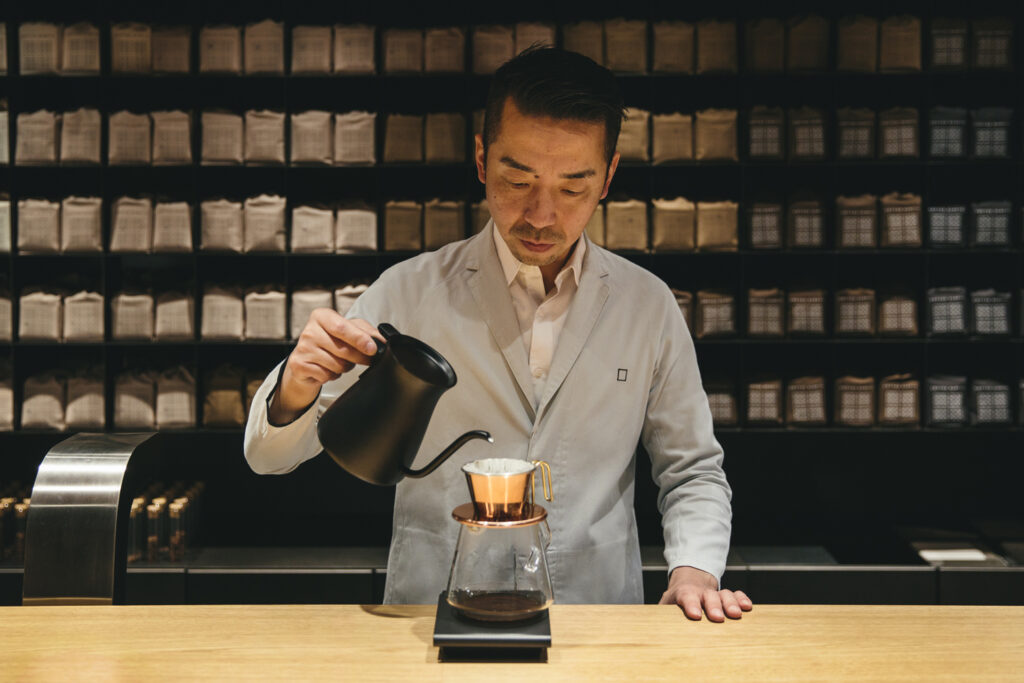
The Birth of Koffee Mameya
This commitment to connection and craftsmanship became the foundation of Omotesando Koffee’s success. When it closed its doors in 2015, fans were heartbroken. For Kunitomo, however, it marked the beginning of a new chapter—one that would take his vision even further. Rather than recreating a traditional café experience, he envisioned a space where coffee could be appreciated in its purest form—not just as a drink but as an art form.
In 2017, Kunitomo opened Koffee Mameya, a unique coffee bean shop. Unlike a conventional café, Koffee Mameya invites customers to dive deep into the intricacies of sourcing, roasting, and brewing. The name “Mameya,” meaning “bean shop” in Japanese, reflects its mission to curate the finest beans from around the world. Visitors don’t just buy coffee—they engage in meaningful conversations with baristas who act as educators, guiding them through flavor profiles of different beans and various brewing techniques.
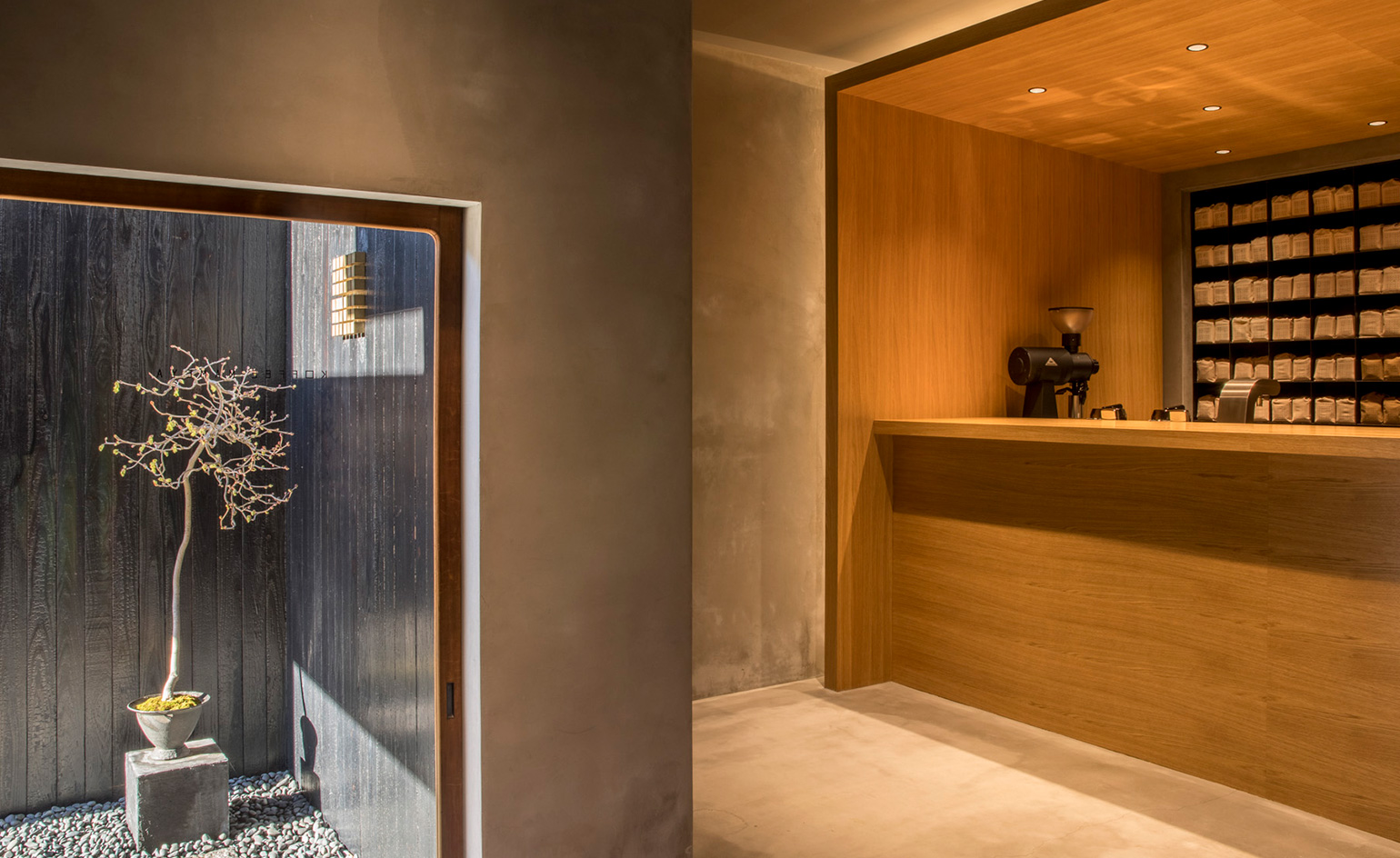
This emphasis on education aligns with Kunitomo’s belief that coffee is not merely about consumption but about connection—connecting with the people behind the beans, the craft of brewing, and the sensory experience of the drink itself.
Considering Kunitomo’s meticulous nature, it might seem surprising that he doesn’t roast his own coffee beans. However, this decision reflects his coffee philosophy. By outsourcing roasting to trusted experts, he ensures Koffee Mameya can offer an unparalleled variety of beans from around the globe. He likens this approach to that of a wine sommelier, curating selections from diverse regions to provide the best possible experience. Roasting, he explains, demands focusing on a limited number of beans, which would restrict what he could offer. By remaining a curator rather than a roaster, he keeps the possibilities wide open, allowing his customers to explore the full spectrum of specialty coffee.
Even the minimalist design of Koffee Mameya embodies Kunitomo’s vision. The space feels more like an art gallery than a shop, with each element carefully considered to enhance the customer’s experience and place the focus squarely on the coffee.
Elevating the Art: Koffee Mameya Kakeru
Building on the success and philosophy of Koffee Mameya, Kunitomo set out to redefine the coffee experience once more. His vision to push the boundaries of how coffee could be appreciated led to the creation of Koffee Mameya Kakeru, a one-of-a-kind establishment in Tokyo’s Kiyosumi-Shirakawa district.
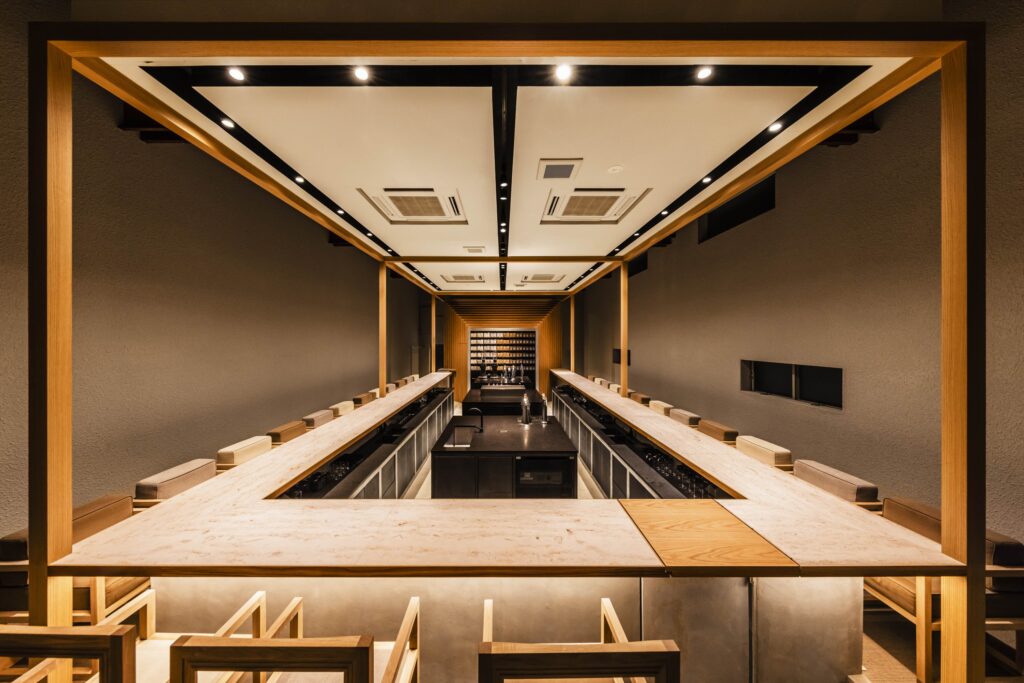
Koffee Mameya Kakeru elevates coffee culture to an art form, offering an experience reminiscent of a coffee kaiseki—a meticulously curated, multi-course journey. Emphasizing quality, seasonality, and precision, the space embodies the Japanese concept of kodawari—a relentless pursuit of perfection.
Patrons are invited to explore coffee through thoughtfully designed tasting courses, sampling various roasts prepared in diverse styles such as cold brew, milk brew, and espresso. These experiences are complemented by Koffee Kashi, delicately crafted sweets that enhance the unique flavors of each brew.
Set in a beautifully renovated warehouse, the interior exudes a refined simplicity, with high ceilings and elegant counter seating that invites guests to observe the baristas at work. This minimalist yet functional design creates a serene space, focusing attention on the coffee itself.
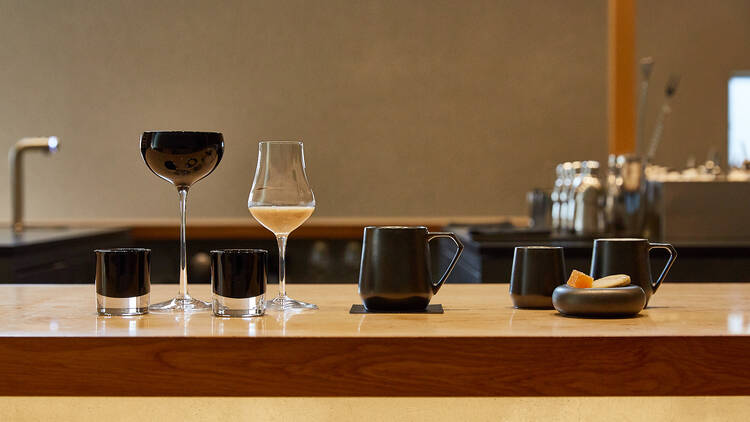
Beyond its dedication to craftsmanship, Koffee Mameya Kakeru collaborates with experts from various disciplines, including patissiers and bartenders, to craft innovative pairings and events. These collaborations further enrich the immersive journey, solidifying Koffee Mameya Kakeru as a true celebration of coffee as both an art and a cultural experience.
The Future of Kunitomo’s Vision
Kunitomo’s journey has been defined by innovation, craftsmanship, and a relentless pursuit of perfection. Looking ahead, his vision for Koffee Mameya and Koffee Mameya Kakeru is just as ambitious, with a focus on expanding his influence, refining the customer experience, and pushing the boundaries of what coffee culture can achieve.
Plans for international expansion are grounded in thoughtful consideration of culture and context. Rather than pursuing rapid growth, Kunitomo aims to bring Koffee Mameya to regions where specialty coffee culture is already well-developed, such as parts of Europe and Asia. When I suggest that Berlin, with its thriving coffee scene, might be the perfect destination, he smiles, acknowledging the city’s potential. For him, cultural differences are not challenges to overcome but opportunities to learn and adapt.
“It’s not about just replicating what we do in Japan,” Kunitomo explains. “It’s about respecting the local coffee culture and finding ways to elevate it while staying true to our philosophy.” This careful approach ensures that Koffee Mameya’s ethos of quality, connection, and craftsmanship resonates with coffee enthusiasts across the globe.
Conculsion: Kunitomo’s Legacy in Coffee
Eiichi Kunitomo’s journey is a testament to his unwavering dedication to craftsmanship, connection, and innovation. From his humble beginnings in Osaka to the globally celebrated spaces of Koffee Mameya and Koffee Mameya Kakeru, Kunitomo has consistently pushed the boundaries of what coffee can be. He has transformed it from a simple beverage into a multi-dimensional experience—a reflection of culture, a medium of connection, and an art form that engages all the senses.
His philosophy challenges the modern tendency toward convenience and efficiency. Instead, he advocates for mindfulness, encouraging us to slow down and savor the story behind each cup of coffee—the people who grow the beans, the artistry of brewing, and the moments shared over a perfectly prepared drink. His spaces are more than coffee shops; they are sanctuaries of thoughtfulness and creativity, inviting us to experience the world through the lens of a master craftsman.
In a bustling city like Tokyo and a fast-paced world beyond, Kunitomo’s approach offers a quiet but profound reminder: that everyday can be extraordinary, and even a cup of coffee has the power to connect us to something greater. As he continues to innovate and inspire, Eiichi Kunitomo cements his place as a pioneer in the global coffee community—a creator who doesn’t just brew coffee but builds bridges between cultures, traditions, and people.
Whether sipping a carefully curated brew at Koffee Mameya or embarking on a tasting journey at Koffee Mameya Kakeru, one thing is certain: Eiichi Kunitomo’s legacy will linger, much like the aftertaste of an exceptional cup of coffee—rich, complex, and unforgettable.
